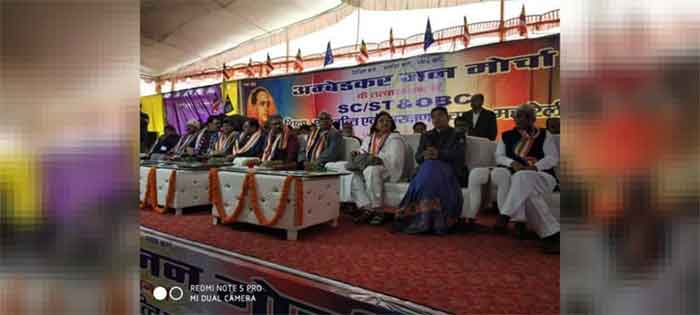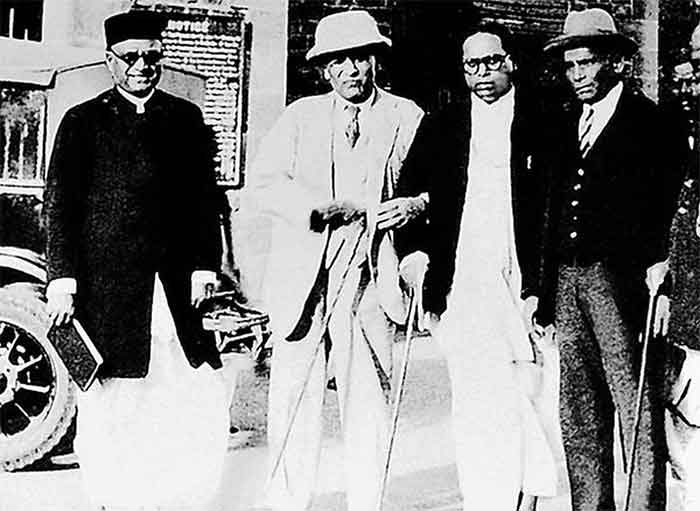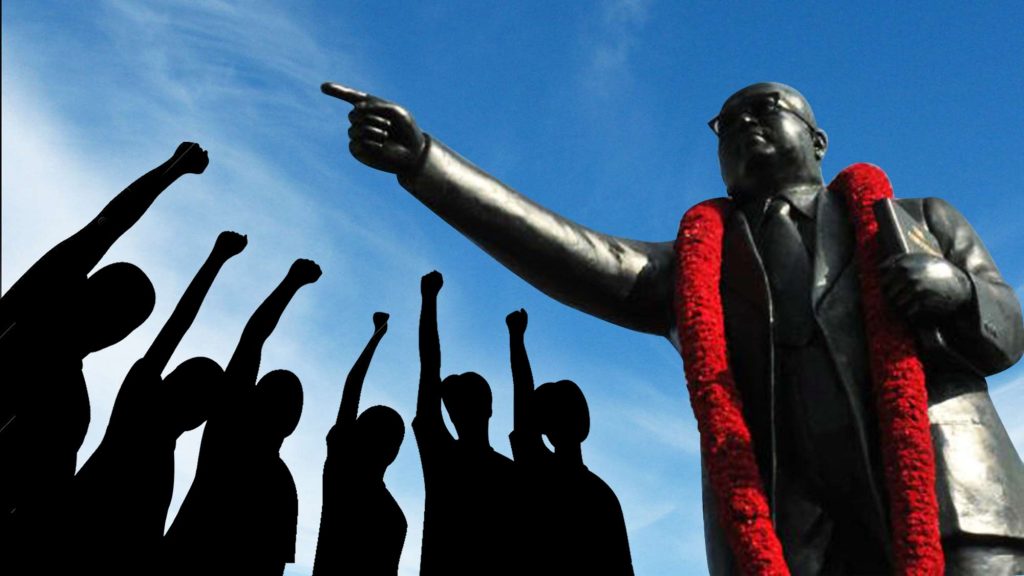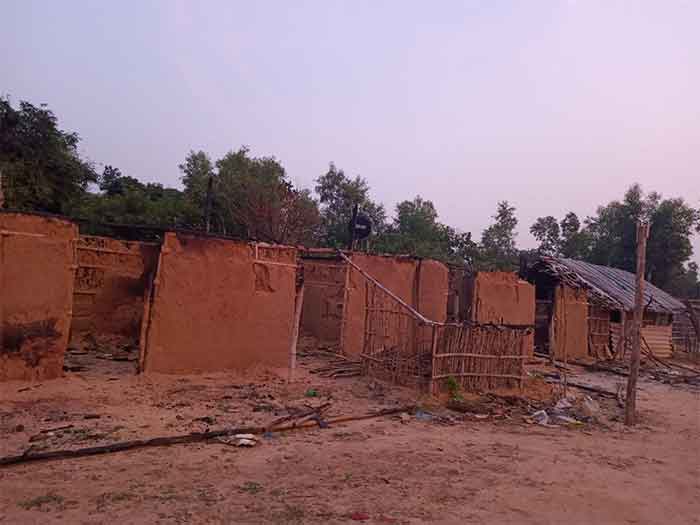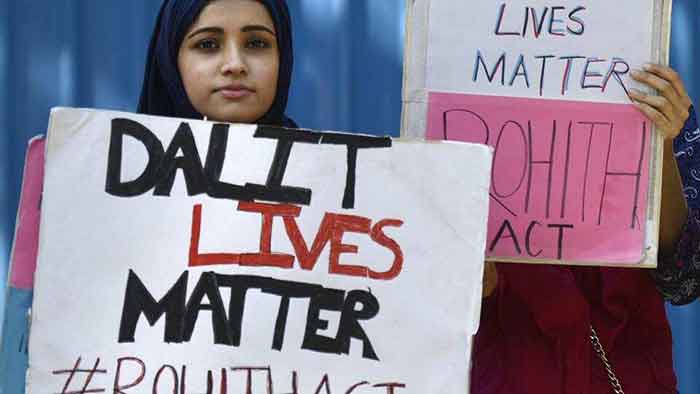
For quite some time now, the word ‘ Bahujan ‘ has been used in politics instead of Dalits. According to the promoters of the Bahujan concept, the Bahujans include Dalits and Backward Classes. According to Kanshi Ram, Muslims are also involved and the number is 85%. According to their theory, the Bahujans should come together and take away power from 15% of the Savaranas (higher castes). However, this formula looks great and has great potential. But what is the basis of Bahujan unity. Is it the formula of being Untouchable or Dalits and backwards or something else? Untouchables and Shudras are divided into innumerable castes and suffer from different caste pride. They suffer from Brahmanism as much as they emulate their behaviour towards Dalits. They have many sharp contradictions. Backward castes consider themselves to be higher than Dalits and behave like that. At present, most of the atrocities on Dalits are being committed by backward castes rather than upper castes. Most of the Dalits are labourers and the economic interest of these newly wealthy castes is hitting the labourers. That is why these castes persecute Dalits for wages. In such a situation, on what basis can unity be established among Dalits and backward castes? On the one hand there is a social distance and a conflict of economic interest on the other. So being downtrodden and backward or Untouchable and Shudras cannot be a mere formula of their unity. Even if there is any unity in political selfishness, it cannot be permanent as has been seen in practice.
Now, if the class analysis of Dalits and backward is done, it is found that even within the Dalits, the affluent and the poorer sections have been created. The difference between the backward classes and the most backward classes within the backwards is very clear. For some time now, the affluent sections of the downtrodden and backward classes have taken advantage of economic growth and gained political power sharing. Contrary to this, the majority of Dalits and backward classes are still very backward. The most downtrodden and the most backward classes are talking about this division. It is also evident from this that the concept of Bahujan is only an aerial concept . Similarly, there is a division of Ashraf, Azlaf and Arjal within Muslims, which is being exposed by Pashmanda Muhaz (backward Muslim).
Now the question arises what can be the real formula of unity within these sections. The above analysis clearly shows that there are two classes within Dalits, backwards and Muslims who have different economic and political interests and also have sharp contradictions and points of clash. So far, the dominant section of these sections has been leading the entire caste/class and community in the name of caste and religion, and this section has taken up whatever economic and political benefit of development. This has intensified caste/class division and conflict within them. Various political parties have been taking advantage of this caste/class divide, but no party has identified the real issues of these classes nor done anything for the upliftment of them. Recently, the BJP has collected them in the name of Hindus and got their votes. If we see, this class is socially, economically and politically backward. The real uplift of these classes can only be done by raising issues related to their backwardness and making policies to resolve them. So, the real unity of these can be created only on these issues and not on caste and religion basis. If viewed in terms of economic and political interests, these classes are natural allies because their problems are the same and the struggle for their liberation is the same. Under the umbrella of the Bahujan, the issues and interests of the most backward section are overshadowed.
Therefore, in order to establish a strong unity of these most backward sections, issues relating to social, economic and political backwardness should be raised instead of the artificial concept of Bahujan based on caste/denomination. The politics of caste and religion strengthens Hindutva. With this objective, All India People’s Front (AIPF) in its agenda under social justice has included: (1) separation of quota of backward Muslims from OBCs, amendment to Section 341 to include Dalit Muslims and Dalit Christians in the Scheduled Castes. Implementation of the recommendations of Sachar Committee and Ranganath Mishra Committee; (2) Reservation quota for most backward Hindu and Muslim castes out of 27% OBC quota; (3) Restoration of reservation in promotions at the earliest; (iv) Filling up of vacant Government posts of SC/ST quota by lauching special drives; (5) Reservation to Dalits, Adivasis, OBCs and Most Backward Classes in the private sector also; (6) Grant of tribal status to tribal castes like Coal of U.P.; (7) Issues relating to strict enforcement of Forest Rights Act and (8) making employment a fundamental right, etc. In addition, stringent action should be taken to prevent communalism and terrorism. There has also been a demand for fast-track courts to hear communal violence cases. In view of giving preference to these sections, the party has reserved 75% posts for Dalits, backward, minorities and women in its constitution. The AIPF is trying to enhance the issue-based politics in place of caste-based politics of the Bahujan, as directed by Dr. Ambedkar.
S.R. Darapuri I.P.S. (Retd) & National Spokesperson, All India Peoples Front
SIGN UP FOR COUNTERCURRENTS DAILY NEWSLETTER

